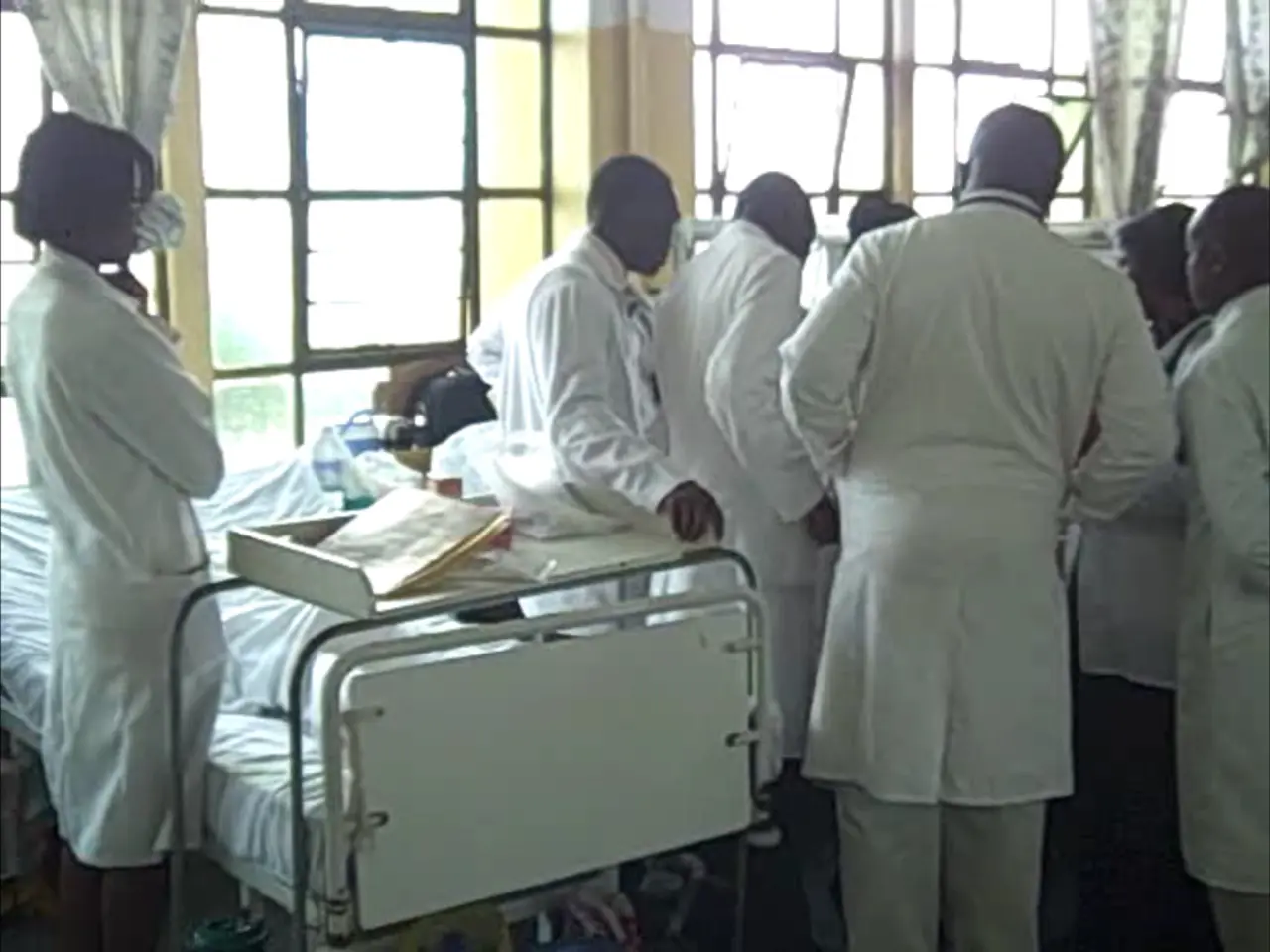The Crucial Role of Outpatient Therapies in Addressing Trauma and Bipolar Disorders in Mental Health Care
Outpatient mental health treatment offers several significant advantages for individuals dealing with trauma and bipolar disorder. These benefits are primarily centered on flexibility, continuity of care, and skill development, while differing from inpatient care mainly in level of support and intensity.
Maintaining Daily Life Structure
Outpatient care allows individuals to live at home and maintain many daily responsibilities such as work, school, or family commitments, while still receiving structured professional mental health support.
Flexible Intensity Levels
Outpatient programs include a range of options from weekly therapy sessions to intensive outpatient programs (IOPs) and partial hospitalization programs (PHPs) that offer varying intensity levels tailored to individual needs.
Skill Building and Emotional Regulation
These programs focus on teaching evidence-based therapeutic techniques such as cognitive behavioral therapy (CBT) and dialectical behavior therapy (DBT) to promote distress tolerance, emotional regulation, coping with trauma, and relapse prevention.
Medication Management and Psychiatric Support
Regular outpatient visits include ongoing psychiatric evaluation and medication management vital for mood stabilization in bipolar disorder and trauma-related symptoms.
Supportive Group Therapy and Peer Connection
Outpatient programs often include group counseling that provides peer support and helps reduce isolation, which is important for recovery from trauma and mood disorders.
Cost-Effectiveness
Outpatient care tends to be more affordable than inpatient treatment and allows individuals to avoid the financial and social disruptions associated with hospitalization.
Step-Down from Inpatient Care
Outpatient treatment provides critical continuity after inpatient hospitalization, aiding in smoother transitions back to everyday life and maintaining therapeutic gains.
| Aspect | Inpatient Treatment | Outpatient Treatment | |----------------------------|----------------------------------------------------------------|----------------------------------------------------------------| | Level of Supervision | 24/7 medical and psychiatric supervision for severe or crisis conditions. | Periodic visits with no overnight stay; patient manages daily life with professional support. | | Environment | Secure, controlled facility removing external stressors. | Patient’s home/community setting with scheduled therapy visits. | | Intensity | Daily intensive therapy including individual and group sessions, with frequent medication adjustments. | Varying intensity from weekly therapy to IOP with multiple weekly sessions, less intensive than inpatient. | | Target Population | Individuals in acute crisis or severe symptom episodes needing stabilization. | Individuals with mild to moderate symptoms or those transitioning from inpatient care. | | Goal | Immediate stabilization, symptom control, and preparation for ongoing recovery. | Long-term skill-building, symptom management, and integration into normal life. | | Peer Support | Constant patient community presence, facilitating shared understanding. | Group sessions offer peer interaction but less constant presence. | | Cost & Disruption | More costly, involves hospitalization and disruption of normal routine. | More affordable, less disruptive, promotes independence. |
In summary, outpatient mental health treatment is especially beneficial for managing trauma and bipolar disorder over the long-term by providing flexible, evidence-based support that enables patients to function in their daily lives while developing coping skills and maintaining treatment continuity. It differs from inpatient care primarily by its lower intensity, absence of 24/7 supervision, and emphasis on integrating treatment with everyday responsibilities.
Comprehensive outpatient care for mental health conditions addresses multiple dimensions, combining medication management, targeted psychological interventions, and practical mental health strategies. A cornerstone of bipolar disorder management within outpatient therapies is appropriate medication, which helps stabilize mood fluctuations and is closely monitored. Lifestyle integration strategies are part of outpatient therapies for bipolar disorder, enabling patients to manage their condition while maintaining their everyday lives.
Trauma treatment within outpatient settings often employs evidence-based protocols designed to address the neurobiological impacts of traumatic experiences. Interpersonal effectiveness training is part of outpatient therapy, helping patients communicate their needs, set appropriate boundaries, and navigate conflict in healthier ways. Outpatient mental health therapies incorporate cognitive restructuring techniques to help patients identify and challenge unhelpful thought patterns.
Family-focused therapeutic approaches are often used in outpatient therapy, recognizing the impact mental health conditions have on entire family systems. Outpatient therapies for bipolar disorder include comprehensive psychoeducation that helps patients recognize early warning signs of mood episodes.
Outpatient therapies offer a flexible option for mental health support, allowing individuals to maintain their daily routines while receiving professional care. Emotional regulation skills development is a focus in outpatient therapies, teaching patients concrete techniques to manage intense emotions.
Outpatient mental health treatments provide practical tools that enhance daily functioning, creating sustainable change that extends beyond the therapy room. Outpatient trauma treatment focuses heavily on developing resilience, the ability to bounce back from difficult experiences. Customized trauma recovery plans are offered in outpatient therapies, considering the specific nature, duration, and impact of the trauma on the individual.
Outpatient therapies provide immediate real-world application of learned coping strategies, reinforcing skills and accelerating the integration of healthy coping mechanisms into daily life. Outpatient therapies often incorporate group sessions for structured skills training, providing peer support alongside professional guidance.
The Outpatient Mental Health Center in Bellevue offers programs designed to integrate therapy into patients' existing schedules, promoting long-term engagement. Outpatient treatment allows people to pursue recovery while managing daily responsibilities like work, school, and family obligations, making treatment sustainable long-term.
Science and health-and-wellness intersect in outpatient mental health treatment, which employs evidence-based therapies and treatments for trauma and bipolar disorder. Mental health treatments in outpatient settings predominantly focus on skill building, emotional regulation, and medication management (mental-health, therapies-and-treatments).
Furthermore, outpatient mental health therapies offer flexible intensity levels to cater to individual needs (therapies-and-treatments). These programs range from weekly therapy sessions to intensive outpatient programs and partial hospitalization programs, which provide varying levels of support (therapies-and-treatments).




